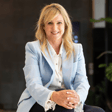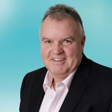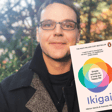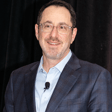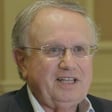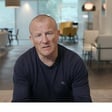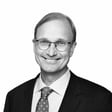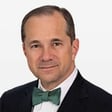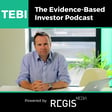Become a Creator today!Start creating today - Share your story with the world!
Start for free
00:00:00
00:00:01

Ep 4: The EBI Conference reviewed
For this week’s show I review the inaugural Evidence-Based Investing (EBI) Conference, held earlier this month in New York City. It’s a great listen, with contributions from three of the most prominent thought leaders on the US investing scene — Josh Brown, Barry Ritholtz and Morgan Housel.
Transcript
Introduction to Evidence-Based Investor Podcast
00:00:05
Speaker
Welcome to the Evidence-Based Investor, the podcast for those who think investing should be based not on hunches or guesswork, but on independent, peer-reviewed, time-tested evidence. My name is Robin Powell and this podcast is brought to you by Regis Media, connecting advisors with clients.
00:00:25
Speaker
Well, what a week and a half
FCA Report: Active Funds vs Evidence-Based Views
00:00:27
Speaker
it's been. Here in the UK, the investing industry is reeling from a hard-hitting report by the Financial Conduct Authority. Without wanting to sound too smug, the report vindicates pretty much everything that I and others have been saying these past few years.
00:00:43
Speaker
In a nutshell, active funds don't beat their benchmarks after costs, and yet the companies that provide them are making whopping profits. Almost all the major players, including advisors, platforms and consultants, are conflicted and, as a consequence, consumers are being very poorly served.
00:01:04
Speaker
Interestingly, the word evidence appears in the report no fewer than 39 times, which perhaps gives you an indication as to how the UK regulator considers evidence to be a sensible thing to base investment decisions on. Make no mistake, this report is a huge deal. OK, it's only an interim report and the industry will lobby like mad to have its recommendations watered down.
00:01:30
Speaker
But remember, financial regulation these days is an international process. I'd be very surprised if regulators in other parts of the world, including North America and Australasia, aren't planning similar action to improve investor outcomes. If you haven't read the report, or at least the key bullet points, then please do. You'll find it on my website, evidenceinvestor.com, along with summaries and a range of other articles and videos about
Review of the NYC Evidence-Based Investing Conference
00:02:00
Speaker
it.
00:02:00
Speaker
Now, delayed from last week because of the FCA report is my review of the inaugural Evidence-Based Investing Conference in New York City. It was staged by IMN in conjunction with Ritholt's Wealth Management.
00:02:15
Speaker
So, how did they come up with the name for the conference? In a moment, we'll hear from Barry Rittoltz, the company's founder and CIO. But first, here's Barry's colleague, Josh Brown, who you might know as the blogger, the reformed broker.
00:02:32
Speaker
Here's the deal. We were trying to come up with a name for what we do. And evidence-based is something that people at DFA have said, you have said on your site. We've seen the term being used around. And it occurred to us that no one had ever collected all of the ideas that fall under that umbrella into one event. So it was a very easy decision. And it's really, really easy to shorten it to EBI. But I just think that people are in search of an investing discipline
00:03:02
Speaker
that involves data, that involves common sense, that involves principles. So evidence-based investing was just a really great catch-all term. Well, we've been preaching for a long time the importance of making rational, unemotional decisions in investing.
00:03:20
Speaker
And we had been kicking the idea of bringing back the big picture conference for a while. We first hooked up with the IMN people. Last year, Josh actually spoke at one of their conferences. And when the opportunity came to partner with them, we do the programming. They do all the heavy lifting, all the stuff that's such a pain in the neck. They're great at that. It turned out to be a great opportunity. And so far, I think the conference has just been fabulous.
00:03:50
Speaker
The speaker list was certainly star-studded. My own highlights were listening to Charlie Ellis talking about his career and his latest book, The Index Revolution, as well as Vanguard's Bill McNabb and Dimensionals' Apollo Lupescu.
00:04:06
Speaker
So what, I asked Barry Rittoltz, stood out for him. Charlie Ellis dropping an F-bomb. That was fantastic. It's gone really well. We have been really fortunate to put together just an unbelievable lineup. You know, you make a wish list and you say, OK, here's 30 people we'd like to have. And if any two or three of them show up, hey, that would be a great conference. And of the 30 people, 26 of them,
00:04:34
Speaker
are here. Bill McNabb is the chairman of Vanguard. Jim Chano is the most famous short seller in the world, telling people these are the red flags to look out for. Charlie Ellis is a legend in the world of investing on the Vanguard Board of Advisors, on the Yale Endowment
00:04:56
Speaker
I think he was chairman of the Yale Endowment, worked with Swenson for years. So they were great. Then on the quant side, we had Jim O'Shaughnessy and Wes Gray and Meb Faber and a handful of people from DFA. Apollo is just this insightful guy when it comes to management. And I know I'm leaving out a ton of people, but everybody who was either on a panel or spoke today
00:05:22
Speaker
is a highly regarded expert and create value for the people who either follow their writings and research or invest with them. So that was the goal. How do we find people that genuinely create value and not just people writing outrageous headlines or making unsupported claims and can't back it up?
00:05:45
Speaker
I really enjoyed this event. The only very small criticism I would make is that there were times when I felt the definition of evidence-based was slightly too liberal. The first speaker, for example, extolled the wisdom of including gold in a portfolio which on the whole isn't supported by academic research. It's a concern I put to
Is Gold Suitable for an Evidence-Based Portfolio?
00:06:08
Speaker
Barry Rittoltz.
00:06:09
Speaker
Well, you know, the gold guy held his own, but everybody was launching barbs at him. Gold has been a dead weight in your portfolio for the past five years. The last 12 months has been fine. But if you bought it in 08, 09, 10, you're not happy about it.
00:06:25
Speaker
The idea behind evidence-based investing is don't rely on heuristics and rules of thumb and the myths that have been passed down on trading desks and amongst investors for years. Actually look at the data and figure out
00:06:41
Speaker
what works in the real world and what doesn't. What is important for any investor organization to focus on and what's unimportant. And the data really steers you towards a certain type of investing that
00:06:56
Speaker
is process-oriented, is reproducible, and steers you away from the sort of low-probability bets that most investors have an appeal to because it's visceral and emotional exciting, but not productive usages of your money. You're listening to The Evidence-Based Investor. I'm Robin Powell. In a moment, we'll hear from my favorite investment writer of all. But first, here's a message from our sponsor.
00:07:26
Speaker
Hi it's Will, I'm a producer from Regis Media. We know running a financial advisory firm is hard work, but we also know the value of high quality regular content and marketing, and that's where we come in. We support firms by helping them attract and retain clients through a mixture of video content, social marketing and written articles. To find out more visit our website RegisMedia.com
00:07:51
Speaker
Welcome back. For me, the most exciting aspect of the evidence-based investing conference was the chance to put faces to the names of people whose blogs I read all the time. The likes of Ben Carlson, for example, Patrick O'Shaughnessy, and for me, the best investment blogger of all, Morgan Hassell. What, I ask Morgan, does he make of the term evidence-based investing?
00:08:17
Speaker
I love the idea of evidence-based investing, and I almost think it's funny that we need to use that phrase because it implies that there is non-evidence-based investing. But that's not just implying that. We know that that's pervasive throughout the whole industry, that a lot of the investing industry is kind of faith-based.
00:08:35
Speaker
And that's done it with good intentions. I think a lot of people invest based on the way they think the world should work Which is often vastly different from how it actually works, and I've always thought outside of biology I don't think there are as many
00:08:50
Speaker
organizations or systems that are as complicated as the global economy. I mean it is one of the most complex things in the stock market too. Trillions of moving parts that affect where the economy is going or where the stock market might go. And when something is that complicated it's very easy to form a view of how you think it should work.
00:09:08
Speaker
and that view being vastly different from how it actually works. And the only way you kind of bridge that gap is with data and evidence of how the world actually works over time. So it's a growing trend, but it's almost comical to me that it took this long and it's still such a small segment of the market.
00:09:24
Speaker
True, as a proportion of the market, evidence-based investing is still relatively small. But according to Josh Brown, its time has come. I think the time has come for evidence-based investing, principally because every other facet of society is undergoing this revolution where data is replacing
00:09:44
Speaker
hunches and gut instinct and kind of we're seeing people make decisions based more on a rigorous analysis these days and you can really look at every other facet of life. So why should finance be different? Why should we keep doing voodoo with money when we're applying big data to every other thing that we do in this world?
The Role of Financial Advisors in Evidence-Based Investing
00:10:09
Speaker
The question I hear again and again is if more and more of us in the future will be opting to invest for the long term in low cost index funds, is there still a role for financial advisors? My view is that although not everyone needs an advisor, everyone should have a financial plan, and there's no one who wouldn't benefit from having a good advisor. Josh Brown agrees. Here's the best way to put this.
00:10:37
Speaker
Back tests are great. Market history is really important to be aware of. But living through it is not the same as reading about it. The advisor helps you with the living through it part. And arguably, it's the most important piece. So if you have a very inefficient, high-cost portfolio, but you somehow manage to stick with it, that's better off than bailing out on a great portfolio at the exact wrong time.
00:11:01
Speaker
or being greedy and adding too much to a certain area of your portfolio at the exact wrong time. So I think focusing just on product or just on active versus passive is the wrong approach.
00:11:13
Speaker
So what about the evidence-based investing conference? Was this a one-off event or will there be more? I think we've put on the best conference of the year and I go to every conference so I can say that with authority. I don't think I've ever been to an event where every single panel was meaningful.
00:11:33
Speaker
brought new information even to an old conversation. All the panelists were spectacular. The fireside chats were great. We are going to do this again in June, out in California, and anyone that missed this one has to get to that one. It's going to be even bigger and better.
00:11:51
Speaker
Finally, I can't finish without mentioning that other big issue which almost everyone was talking about in New York.
Market Reactions Post-Trump Election
00:11:59
Speaker
I'm referring, of course, to the presidential election. I think the best way to think about this is at 9 p.m. Eastern time on the night of the election, the betting odds gave Donald Trump an 8% chance of winning. At 10 p.m., an hour later, they gave him a 95% chance of winning.
00:12:18
Speaker
When you look at that world as being that unpredictable, that we don't know what's gonna happen in an hour's time, that should give you pause in terms of saying, what is the market gonna do? And just, we're only one week into, we're only one week after the election, but the market's response has been totally different from what almost anyone thought, which again should give us pause to what we might expect over the next four years.
00:12:40
Speaker
I have political opinions and I have my reactions to where the world is going in terms of politics, but I never let them influence my investing decisions. Just because I think it's so hard to tie what's happening in Washington and
Conclusion and Future Insights
00:12:53
Speaker
what might happen in Washington to what might happen in the market over the next 10 or 20 years.
00:12:57
Speaker
That was Morgan Houssell bringing this latest Tebby podcast to a close. Thank you to Morgan and to Josh and Barry, and to you for listening. Until next time, from me, Robin Powell, goodbye.


